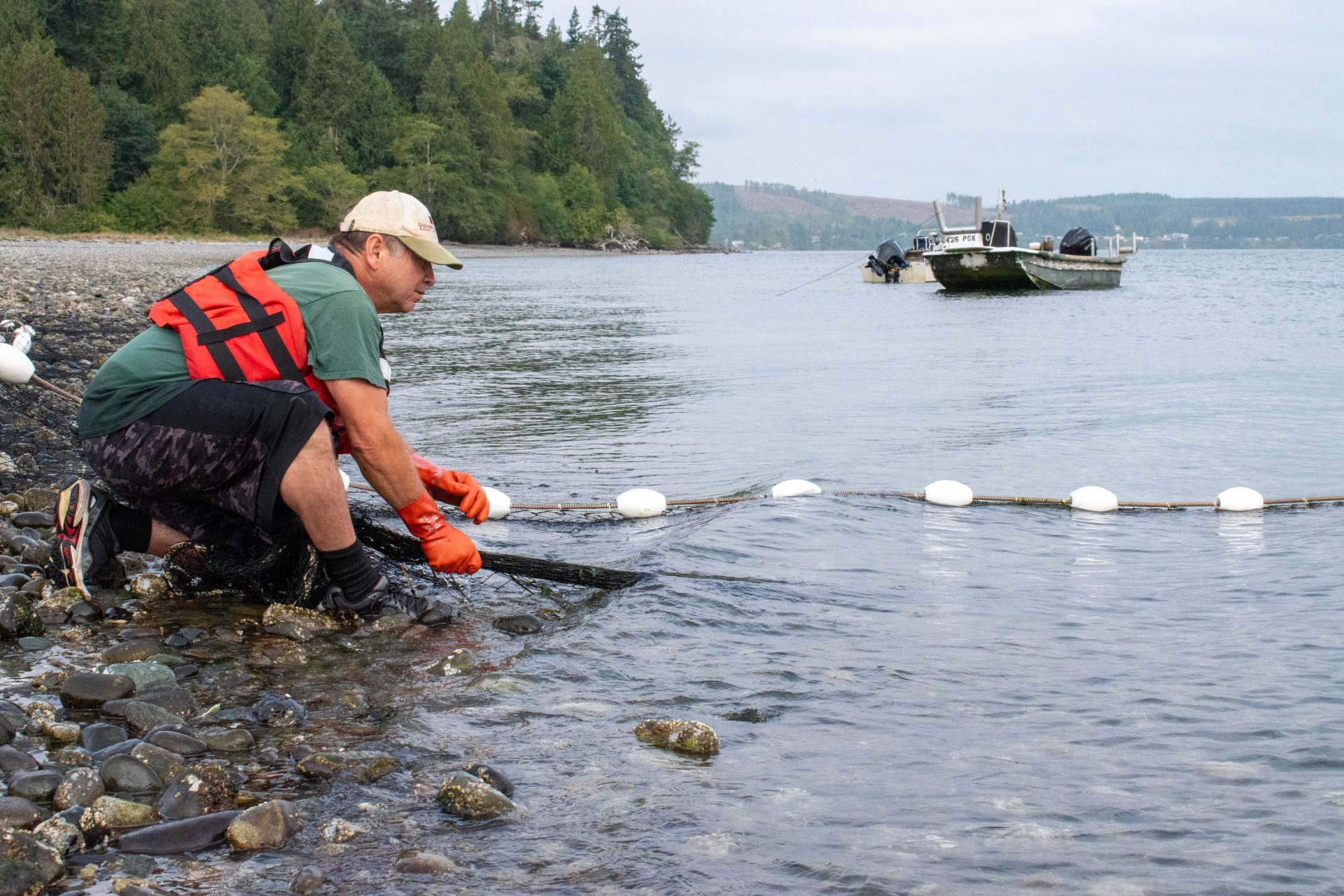The Quinault Indian Nation thinks the state can do a better job responding to the recent spill of 165,000 Atlantic salmon into Puget Sound.
In the most recent edition of their newspaper Nugguam, the tribe called on the state to expand the focus of its response to include the Pacific Ocean and coastal rivers. They also reminded the state that “tribal governments must be factored into and fully considered in any related decision making.”
The tribe’s concern for coastal rivers is rooted in an incident 14 years ago. Said Fawn Sharp, president of the Quinault tribe:
“(Atlantic salmon are) not a new problem. More than a decade ago, Atlantic salmon were found in the Black River and Scatter Creek, both remote tributaries to our Chehalis River, and they have been found in the ocean as well.”
The Atlantic salmon had escaped a facility on Scatter Creek that still supplies many Atlantic salmon operations in the region with juvenile fish.
The long-term impact of the large-scale release of Atlantic salmon is still coming into focus:
(Sharp) concurred with all the specific objections to Atlantic salmon that have been voiced by Puget Sound Tribes over the past two days. These objections include concerns about the spread of disease and sea lice, feeding on native Pacific salmon fry and smolts, competition for food and habitat and the environmental impacts of the salmon, even while in the net pens. “We live on the Pacific Ocean, not the Atlantic. We have our own species, and we’re working very hard to preserve and protect them to benefit this generation and the generations to come. Keep Atlantic Salmon on the East Coast where they belong,” (Sharp) said.





